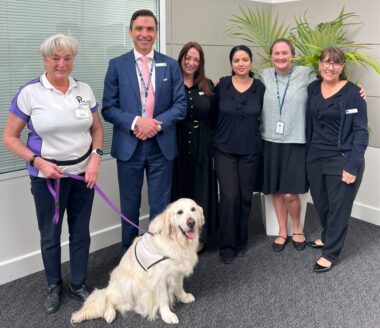Monash University experts are able to discuss issues in relation to the Australian Government’s Intergenerational Report. This year’s report focuses largely on issues around the ageing population, aged care workforce and spending on aged care.
Available to comment:
Darshini Ayton, Associate Professor Health and Social Care Unit
Contact details: +61 425 705 130, or [email protected] or Twitter DM: @darsh_ayton
- Australia’s ageing population is a public health success
- The health and social care system is fragmented across state and federal governments, which makes timely navigation and access challenging
- The care workforce is crippled with national and global shortages – considering how to skill the next generation of workers to care for older people is vital
The following can be attributed to Associate Professor Ayton:
“Our ageing population is a public health success story. We have prevention and treatment for many diseases that have led to people living longer and living well. However, the systems of care across health and social care need to be reimagined to make sure we are addressing the needs of our older adults.
“This includes better and timely access to health and social care across state and federal government boundaries to enable older people to live at home for longer, educating and attracting the next generation of the aged care workforce and ensuring we have processes in place to respond to innovations in drug discovery and diagnosis, in for example Alzheimer’s disease.”
Dr Rosanne Freak-Poli, Senior Research Fellow School of Public Health and Preventive Medicine
Contact details: +61 412 700 632, or [email protected] or Twitter DM: @DrFreakPoli
Prior media discussions: https://www.youtube.com/@rosannefp
- It is no longer about how long we live, but how long we live in good health.
The following can be attributed to Dr Feak-Poli:
“It is exciting to think how far we have come in terms of life expectancy. In the 1900s Australians may have only expected to live until the age of 55. In the 1950s Australians expected to live to about 70. Now life expectancy is in our early 80s.
“It is no longer about how long we live, but how long we live in good health. While some people live in good health well into later life, others are negatively impacted earlier in life. We know that different social and economic groups have varying access to quality healthcare, resources and opportunities, creating disparities in wellbeing. Our next step is ensuring fairer health longevity. Fairer health will involve implementing a combination of strategies, policies and initiatives to address disparities.”
Dr Pei-Chun Ko, Lecturer, School of Social Sciences
Contact details: +61, or Pei-Chun [email protected] or Twitter DM: @maxweberko
- Multimorbidity prevalence in younger cohorts
- Heterogeneity among the future ageing population
- Social and economic engagement of older adults in the care economy
The following can be attributed to Dr Ko:
“Behind such a fiscal prediction drawn from the ageing demographic, we may further consider other trends on the population level. A gap between life expectancy and healthy life expectancy in an ageing population implies a certain level of continuous care required from the health sector and aged care.
“Besides planning ahead for the care of older adults, it’s important to think about what kind of social infrastructure we can design to sustain the necessary social engagement among older people, reduce the ageism towards older adults, and improve financial wellbeing of older adults. Social and financial wellbeing of older adults will be crucial to empower the agency of this population group.”
Profesor Anthony Scott
Director, Centre for Health Economics
Monash Business School
Contact details: +61 (0) 422806280 [email protected]
- Health economics
- Health care labour markets
- Financial incentives
- Physician behaviour
- Economics of primary care and hospitals
The following can be attributed to Professor Scott:
"There are no big surprises in this report. Though the numbers are large, the key message is 'don't panic'; these reports include many assumptions in their forecasts.
“Many areas such as aged care and NDIS are undergoing reform at the moment, which will help to make them more sustainable into the future, and which are not reflected in forecasts in the report.
“Though there will be more older people in the future, they will also be healthier due to continuous improvements in technology to treat chronic disease."
For more Monash media stories visit our news & events site. For any other topics on which you may be seeking expert comment, contact the Monash University Media Unit on +61 3 9903 4840 or [email protected]


